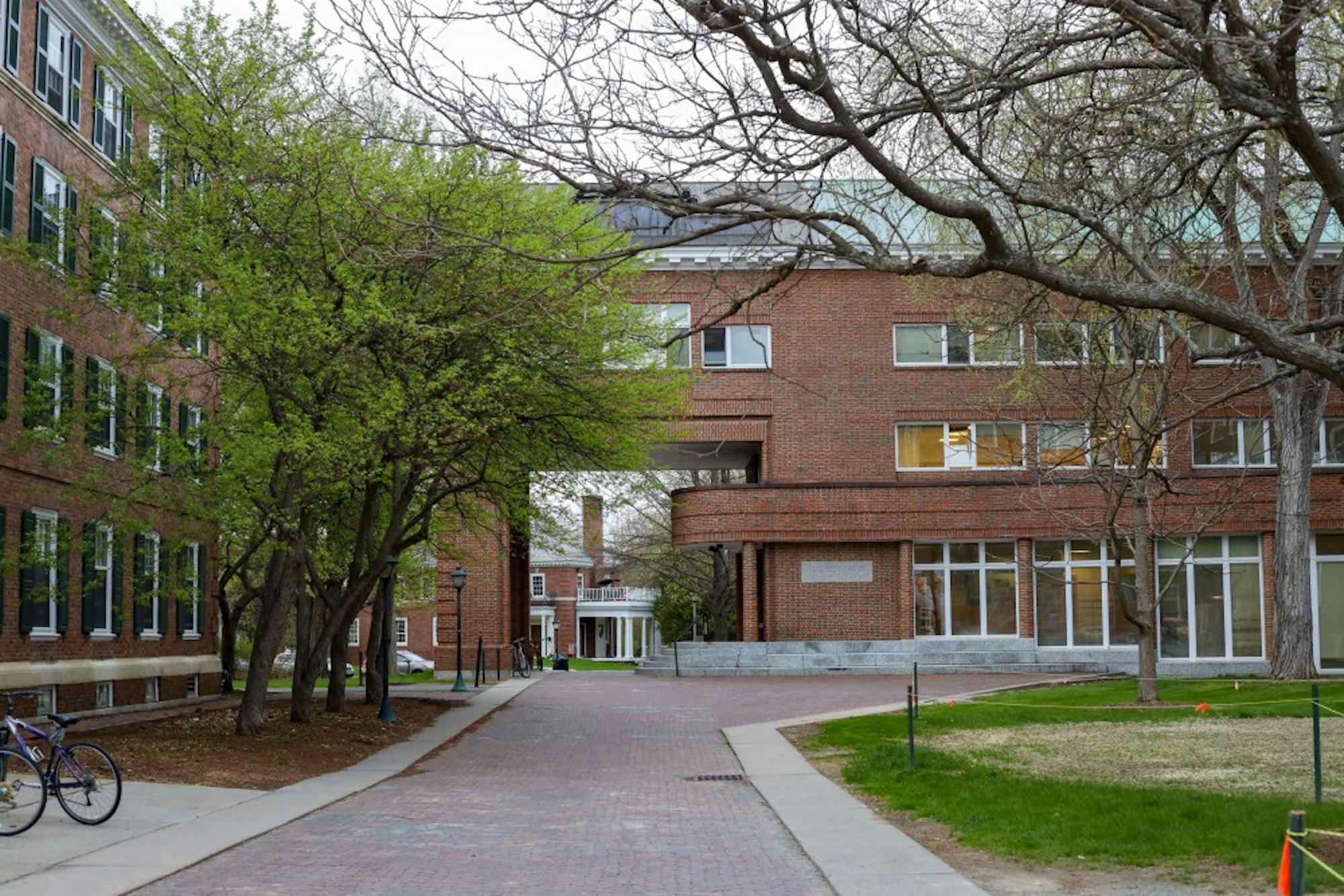On Nov. 8, the Rockefeller Center for Public Policy hosted a post-election panel called “What Just Happened?” featuring government professors Jason Barabas, Jennifer Lind, Anna Mahoney and Brendan Nyhan and moderated by senior vice president for communications Justin Anderson. The panelists discussed the implications of the 2024 election results before fielding questions from the audience.
Former president Donald Trump won the election with 312 electoral votes compared to Vice President Kamala Harris’s 226, the Associated Press called on Nov 10.
Approximately 190 community members attended the panel in Filene Auditorium, while 45 people live-streamed the panel on YouTube, according to Rockefeller Center assistant director for public programs and special events Dvora Greenberg Koelling.
To begin the event, Nyhan said there was a “broad swing” across geographical areas and constituent groups toward Trump and the Republican Party. According to Nyhan, the swing makes it difficult to determine whether “some group or some information source or some campaign factor drove the result.”
Attendee Elizabeth Chun ’25 said it was “interesting” to learn that Trump had “a pretty uniform impact on people across demographic and geographic lines.”
“My intuition told me that Trump made a big impact on certain demographics of voters, such as young white males … [and] low income people in rural America,” Chun said.
Barabas discussed election polling, and said there were “way too many polls at that 50/50 mark,” which made the election seem to be more of a tossup than it actually was. Barabas attributed this to the possibility of “herding” — when pollsters adjust their results to be more in line with other polls. Barabas previously launched The Dartmouth Poll, which surveyed New Hampshire voters about their electoral preferences and found that 61.9% of participants favored Harris, while 33.5% favored Trump. The Dartmouth newspaper was not affiliated with the study or its naming.
Nyhan said economic inflation can have an impact on election results. While he said Democrats “underperformed” compared to the 2020 election, he noted that they “may have overperformed relative to what we would have expected, given the way inflation hurts.”
“Inflation like we experienced hasn’t been a part of American politics since the 1970s,” Nyhan said. “… Those are not conditions for a strong Democratic Party performance.”
The conversation then turned to foreign policy. Lind, whose research focuses on international relations, said Ukraine is “not happy” with the election outcome because a second Trump presidency might jeopardize aid to Ukraine. She noted that the Biden administration has used presidential directives, a type of executive order, to supply aid to Ukraine, while Trump’s commitment to do the same has been questioned.
“It’s not been Congress — it’s been the president that has literally been giving Ukraine aid,” Lind said. “Would President Trump do the same? I don’t think anybody believes he would.”
Lind said she believes Trump will be influenced by advisors who both believe the United States “should be everywhere, negotiating deals and going to war if necessary,” as well as a newer conservative faction of “prioritizers,” who prefer less direct U.S. involvement globally and emphasize the threat posed by China.
Nyhan, whose research focuses on political misinformation, said artificial intelligence misinformation “played almost no role” in either campaign beyond enabling the creation of memes that were “used to please the partisan base.”
Instead, Nyhan pointed to the impacts of a different form of misinformation.
“We underestimate the importance of the boring misinformation, which is the kind coming from politicians who have tens of millions of supporters in the American public —one of whom tried to overthrow our election system and stay in power after the last election on the basis of an unprecedented campaign of misinformation,” Nyhan said.”
The panel then discussed how gender demographics affected the election outcome. Mahoney, whose research focuses on women’s representation, said the gender gap “performed about as it has” over the past 10 years.“Women as a broad category typically support the Democratic candidate by about 10 more points,” Mahoney explained. “Harris was around there.”
However, there was an “over-expectation” that women would cross party lines to vote for Harris, which is “not something that people do,” Mahoney said.
The panel then transitioned to an audience Q&A. In response to a question about Trump’s plans to impose blanket tariffs on imported goods, Lind said the policy would lead to inflation.
“We’re talking about a tax on products that are coming into the United States, and so obviously, if you impose a tax, that raises the cost of the product,” she said. “And so that’s inflationary.”
Leyla Jacoby ’25 said she “really enjoyed” the discussion and appreciated the combination of “a more domestic look, a more international look, a more policy look [and] a more public opinion look.”
“[It was] really interesting to hear their perspectives on what we don’t know, what we do know about what happened, how we should be thinking about this, what kind of questions we should be asking, data we should be looking for [and] research that’s still needed,” Jacoby said.




